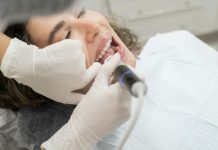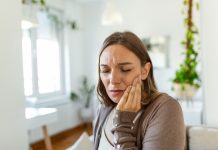
Age-related macular degeneration, or AMD, is disease-causing blurred central vision due to damage to the macula.
The macula is a small area at the back of the eye.
AMD currently affects millions of people in the United States, and there is no cure for it.
Julie Rosenthal, M.D., a Kellogg Eye Center retina specialist from Michigan Medicine, discusses the risk factors of the eye disease and how to prevent it.
A key factor of AMD is age. Previous research has shown that the disease is most likely to occur after age 60.
It’s also more common in women and white people.
The researcher suggests people at the high risk of AMD do seven things to protect their eyes:
Know your family history.
People who have a first-degree relative with AMD may have a much higher risk of developing the disease.
These people need to pay attention to potential symptoms such as difficulty recognizing faces, struggling to adapt to low light and seeing straight lines that appear wavy.
Eat a healthy diet high in leafy greens
Research has shown that spinach, kale, and Swiss chard may protect eye health.
These vegetables have a lot of antioxidant vitamins and help protect against cellular damage from free radicals, which can contribute to eye disease.
Take nutrient supplements
People with a nutrient deficiency may consider taking multivitamins.
The researcher suggests that people at risk of advanced AMD should ask their doctor about a specialized blend of supplements known as AREDS.
The macular degeneration vitamins are not a treatment or cure but may help cut the risk of getting the more severe forms of AMD.
Do not smoke tobacco.
Smoking may double the risk of developing AMD.
In addition, smoking exposes the person to dangerous free radicals that can cause cellular damage and keep nutrients from reaching the retina.
The sooner one quits smoking, the better the outcome will be.
Wear sunglasses
Sunglasses offer protection from UV and blue light that can cause retinal damage from repeat exposure.
The American Macular Degeneration Foundation recommends people wear a pair with a UV 400 label.
Have healthy blood pressure and a healthy body weight
High blood pressure can lead to poor blood circulation. It can also restrict blood flow to the eyes, thus contributing to AMD.
Losing weight has been found to lower blood pressure. For people who already have high blood pressure, even small gains help.
Get regular eye exams
When you get older, it is important to get regular eye exams that include pupil dilation and further macular degeneration tests, such as an optical coherence tomography (OCT) test.
Copyright © 2019 Knowridge Science Report. All rights reserved.



